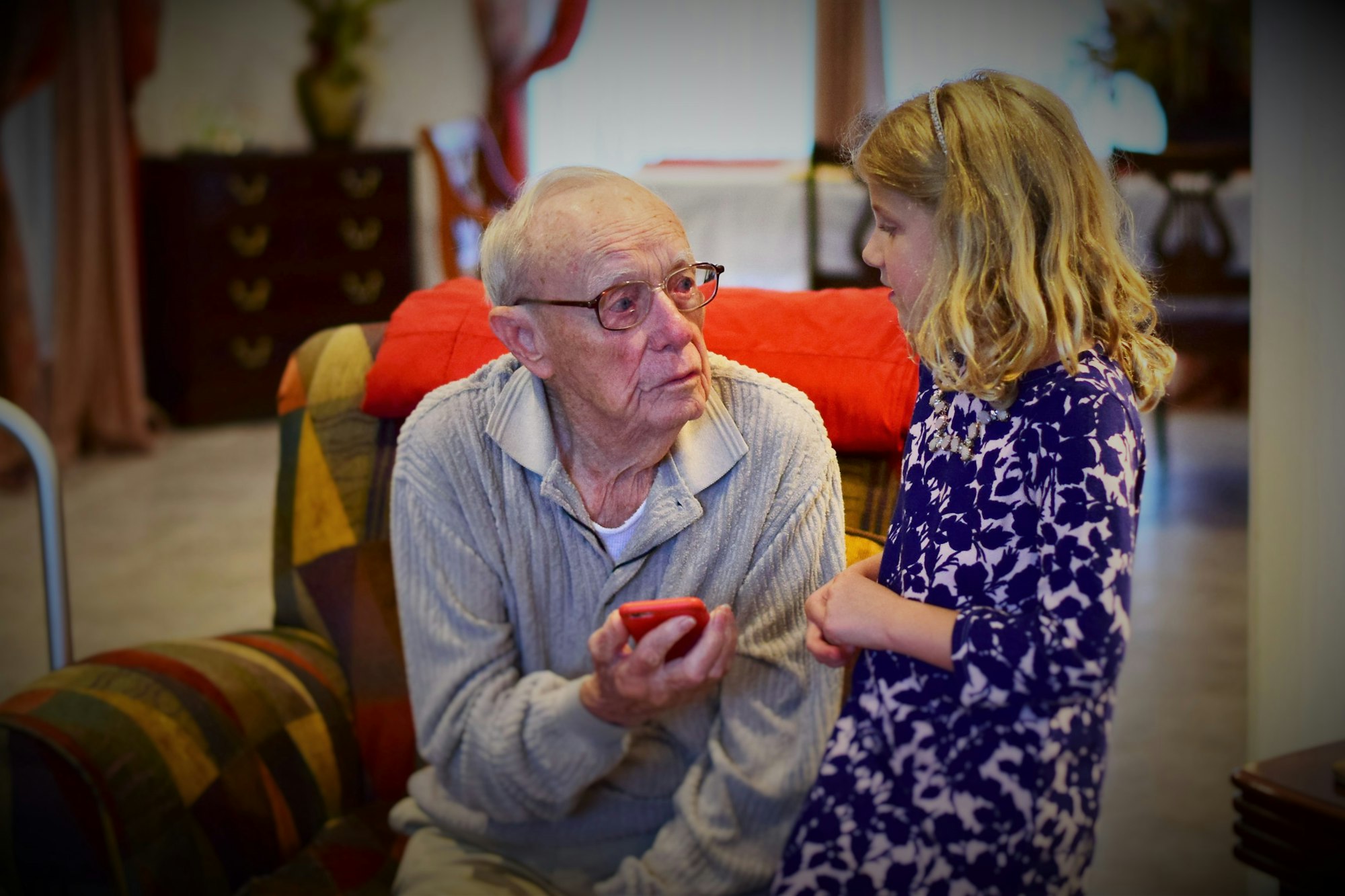Exploring Respite Care Options in Milwaukee County for Alzheimer's Patients: Balancing Cost and Quality
Explore respite care in Milwaukee for Alzheimer's patients, focusing on balancing cost and quality. Learn about types of care, funding options, family involvement, and the impact of temporary relief on caregiver and patient well-being.

Are there any facilities in Milwaukee County where an Alzheimer’s person not diagnosed as terminal can be placed temporarily for 5-7 days? They are not Medicaid eligible. I would need to know cost also.
-Ruth
Ruth, There are facilities that will take a non-terminal Alzheimer’s patient and provide care for just a few days. This is called respite care. So many caregivers need and want a break. If you have the funds, the facility will be willing to work with you on addressing your family members needs. If a family member is on hospice, Medicare will pay for a few days in respite care. Check with your provider.
-Diane
Caring for a loved one can be overwhelming — but you're not alone. If you have questions, big or small, our expert team is here to help.
👉 Click here to Ask the Expert

More on Respite Care and Coverage out-of-pocket for respite care. It's crucial to plan financially for these expenses.
What is Respite Care?
Respite care is a type of temporary care service designed to provide relief to primary caregivers who are caring for a family member with special needs, disabilities, or age-related conditions. These services can be delivered in various settings, including in-home care, adult day care, or residential-based care facilities. The primary goal of respite care is to give family caregivers a much-needed break from their caregiving responsibilities, allowing them to rest, recharge, and focus on their own well-being. This temporary relief is crucial for maintaining the health and emotional stability of primary caregivers, ensuring they can continue to provide high-quality care for their loved ones.
What Respite Care?
Caring for a loved one with Alzheimer’s disease is a demanding task that can take a toll on the primary caregiver’s physical and emotional well-being. A respite care program is essential in providing structured support for caregivers, offering professional assistance with personal care and homemaking. Respite care emerges as a crucial service in this context, offering temporary relief to family caregivers. In Milwaukee County, the need for quality respite care is particularly acute for Alzheimer’s patients not classified as terminal and who are ineligible for Medicaid. This comprehensive guide addresses the various facets of respite care, emphasizing the role of Medicare and Medicaid, the challenge of finding affordable options, and the importance of establishing a Care Team Partner Support Group.
Understanding Respite Care
Respite care provides temporary rest for family caregivers from their caregiving responsibilities, ensuring that the person with Alzheimer’s continues to receive care in a safe environment. Creating a personalized care plan tailored to the needs of the individual receiving respite care is crucial to ensure that the care provided aligns with their specific requirements and preferences. It can range from a few hours to a few weeks, and is offered through various settings like assisted living facilities, in-home care, adult day care centers, and skilled nursing facilities.
Benefits of Respite Care for Caregivers
Respite care offers numerous benefits for family caregivers, including:
- Reduced Stress and Burnout: Taking a break from caregiving duties can significantly reduce stress and prevent burnout, allowing caregivers to return to their responsibilities feeling refreshed.
- Improved Mental and Physical Health: By stepping away from their caregiving role, even temporarily, caregivers can focus on their own self-care and well-being, which is essential for their overall health.
- Increased Quality Time with Loved Ones: Respite care provides caregivers with the opportunity to spend quality time with their loved ones without the constant burden of caregiving tasks.
- Enhanced Well-Being: Regular breaks can improve caregivers’ overall well-being, enabling them to provide better care for their family members.
- Financial Assistance: Some respite care programs offer financial assistance to help cover the costs of care, making it more accessible for families.
Respite Care Services in Milwaukee County
Milwaukee County offers several respite care options. However, availability and cost can vary. Respite services can be broadly categorized into:
Assisted Living Facilities and Skilled Nursing Facilities: These provide comprehensive care, including medical care, personal care services, and social activities. They are ideal for caregivers needing a break for more than a few days.
In-Home Respite Care: This involves a respite carer or home health aide coming to the patient’s home. It’s suitable for those preferring their loved one to stay in a familiar environment.
Adult Day Care Centers: These centers offer care and social interaction for a few hours or a full day, allowing caregivers to attend to personal tasks or work.
Respite Care Providers in Milwaukee County
Milwaukee County offers a range of respite care providers that cater to the unique needs of family caregivers and their loved ones. Some of the top respite care providers in Milwaukee County include:
- Visiting Angels Milwaukee: Offers customized respite care services, including personal care, companionship, and light housekeeping, ensuring that your loved one receives comprehensive support.
- Easter Seals Southeast Wisconsin: Provides respite and recreation services for adults 16 and older with disabilities, offering a safe and engaging environment.
- New Health Services (MCFI): Offers a variety of respite care services, including personal care, medication management, and transportation, tailored to meet the specific needs of each individual.
- Paragon Community Services: Provides respite care services, including personal care, companionship, and light housekeeping, helping to maintain a comfortable and supportive home environment.
- St. Ann Center: Offers respite care services, including overnight care, personal care, and medication management, ensuring that your loved one is well-cared for even during extended breaks.
These respite care providers offer a range of services designed to support family caregivers and their loved ones. By choosing a reputable respite care provider, caregivers can ensure that their loved ones receive high-quality care while they take a well-deserved break.
Cost and Funding Options
The cost of respite care varies based on the type of service and duration. A respite program provides structured support for caregivers, offering them much-needed time to rest and rejuvenate. In Milwaukee County, assisted living facilities and skilled nursing facilities are generally more expensive than in-home care or adult day care services. To manage these costs, families can explore several avenues:
Medicare and Medicaid: While Medicare generally does not cover long-term care services, it may cover certain short-term respite care under hospice care. Medicaid, on the other hand, may offer more extensive respite care coverage, but eligibility requirements can be stringent.
Private Insurance and Long-term Care Insurance: Some private health insurance and long-term care insurance policies cover respite care. It’s essential to check with the insurance company for specifics.
Government Programs and Non-Profit Organizations: Programs like the ARCH National Respite Network and the Alzheimer’s Association may offer financial assistance or subsidized care options.
Out-of-Pocket: Many families end up paying out-of-pocket for respite care. It’s crucial to plan financially for these expenses.

Building a Care Team Partner Support Group
To mitigate the challenges of caregiving and respite care, establishing a Care Team Partner Support Group can be invaluable. This involves:
Encouraging Family Involvement: Hold family meetings to discuss caregiving tasks and organize relief. It's important to encourage all family members to participate in caregiving.
Leveraging Community Resources: Connecting with local support organizations, adult daycare centers, and web-based communities can provide additional support and resources.
Professional Caregivers: Hiring professional caregivers for regular respite breaks can be a part of the care team strategy. They bring expertise and trained staff, ensuring quality care for the patient.
Mental Health and Well-Being: Focus on the mental health and well-being of both the patient and the caregiver. Support groups, both in-person and online, can offer emotional support and practical advice.
Respite care is a vital resource for family caregivers in Milwaukee County, especially for those caring for someone with Alzheimer's. While cost and accessibility are significant challenges, understanding the available resources, including Medicare and Medicaid, can help in navigating these obstacles. Additionally, building a Care Team Partner Support Group can provide the necessary support and relief, ensuring the well-being of both the caregiver and the person with Alzheimer's. It's a journey that requires patience, understanding, and a supportive community.
Frequently Asked Questions (FAQ) on Respite Care for Alzheimer's Patients
What is the role of a primary caregiver in respite care?
The primary caregiver is responsible for the day-to-day care of an Alzheimer's patient. In respite care, they coordinate and facilitate temporary care solutions, ensuring their loved one's needs are met while they take a break for their own well-being.
How do respite care providers ensure a safe environment for Alzheimer's patients?
Respite care providers, whether in-home or in a facility, are trained to create a safe, secure environment tailored to the needs of Alzheimer's patients. This includes measures to prevent wandering, ensure medication management, and provide appropriate mental and physical activities.
Can respite care help with the mental health of family caregivers?
Absolutely. Respite care offers family caregivers a chance to rest, reducing stress and the risk of caregiver burnout. This break is crucial for maintaining their mental health and overall well-being.
What are the benefits of adult day services for Alzheimer's patients?
Adult day services offer social interaction, engaging activities, meals, and sometimes medical care, contributing to the overall well-being and mental stimulation of Alzheimer's patients.
How can respite care contribute to the well-being of older adults with Alzheimer's?
Respite care provides older adults with Alzheimer's a change in routine, social interaction, and professional care that can enhance their quality of life, while also giving caregivers time to recharge.
What is the significance of family meetings in organizing respite care?
Family meetings are crucial for discussing the needs of the Alzheimer's patient, delegating caregiving responsibilities, and planning for respite care. These meetings ensure that all family members are informed and involved in the care process.
How does a support group assist family caregivers?
A support group provides emotional support, practical caregiving tips, and a platform to share experiences with others in similar situations. It can be a valuable resource for coping strategies and finding respite care options.
Are there specialized respite care services for those with Alzheimer's?
Yes, many respite care facilities and providers offer services specifically tailored to the needs of Alzheimer's patients, including specialized activities, trained staff, and secure environments.
How can informal caregivers contribute to respite care?
Informal caregivers, like friends and family, can provide short-term care or companionship, allowing the primary caregiver to take a break. They play a vital role in the caregiving network.
What types of personal care can a respite care provider offer to an Alzheimer's patient?
Respite care providers can assist with various personal care tasks, including bathing, dressing, medication management, and mobility assistance, ensuring the patient's daily needs are met.
Can respite care cover medical appointments for Alzheimer's patients?
Yes, many respite care providers can accompany Alzheimer's patients to medical appointments, ensuring they receive necessary medical care while giving the primary caregiver a break.
How do government programs assist in covering respite care costs?
Government programs may offer financial assistance, subsidies, or vouchers to help cover the cost of respite care. These programs vary by location and eligibility criteria.
What is the importance of taking a break for primary caregivers?
Taking a break is essential for primary caregivers to prevent burnout, manage stress, and maintain their own health. Regular breaks allow caregivers to continue providing quality care over the long term.
You might also like this article:













